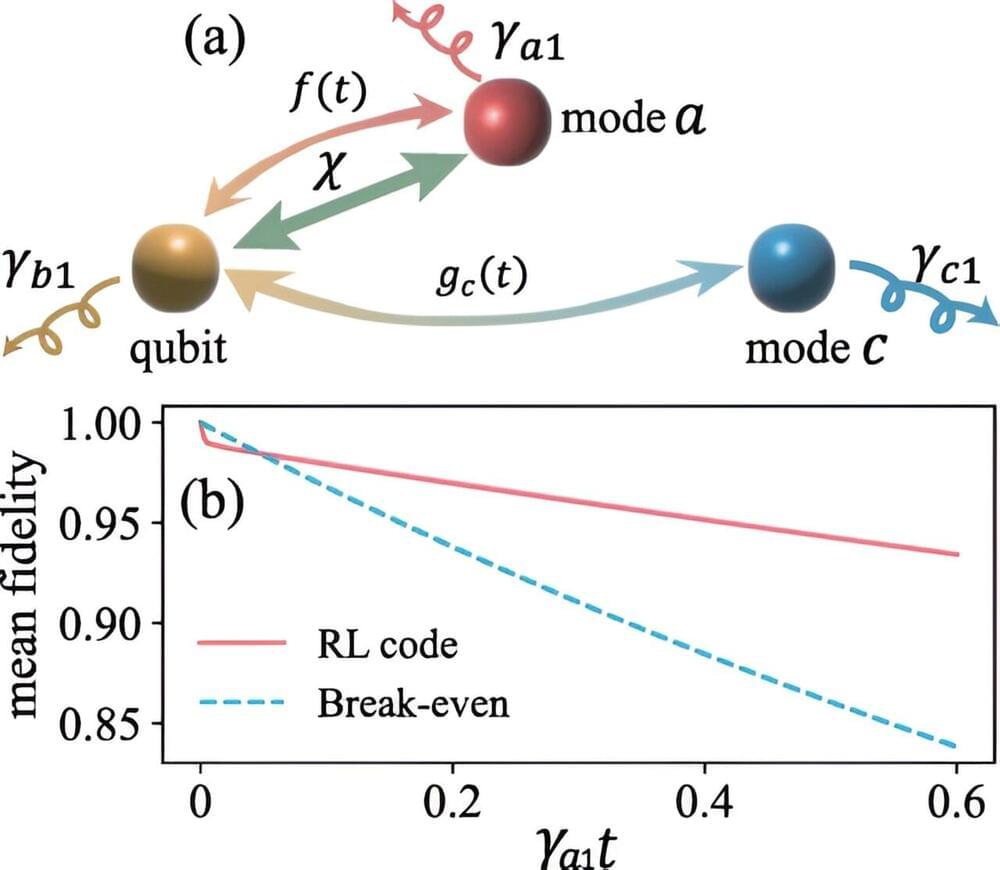Researchers from the RIKEN Center for Quantum Computing have used machine learning to perform error correction for quantum computers—a crucial step for making these devices practical—using an autonomous correction system that despite being approximate, can efficiently determine how best to make the necessary corrections.
The research is published in the journal Physical Review Letters.
In contrast to classical computers, which operate on bits that can only take the basic values 0 and 1, quantum computers operate on “qubits”, which can assume any superposition of the computational basis states. In combination with quantum entanglement, another quantum characteristic that connects different qubits beyond classical means, this enables quantum computers to perform entirely new operations, giving rise to potential advantages in some computational tasks, such as large-scale searches, optimization problems, and cryptography.
